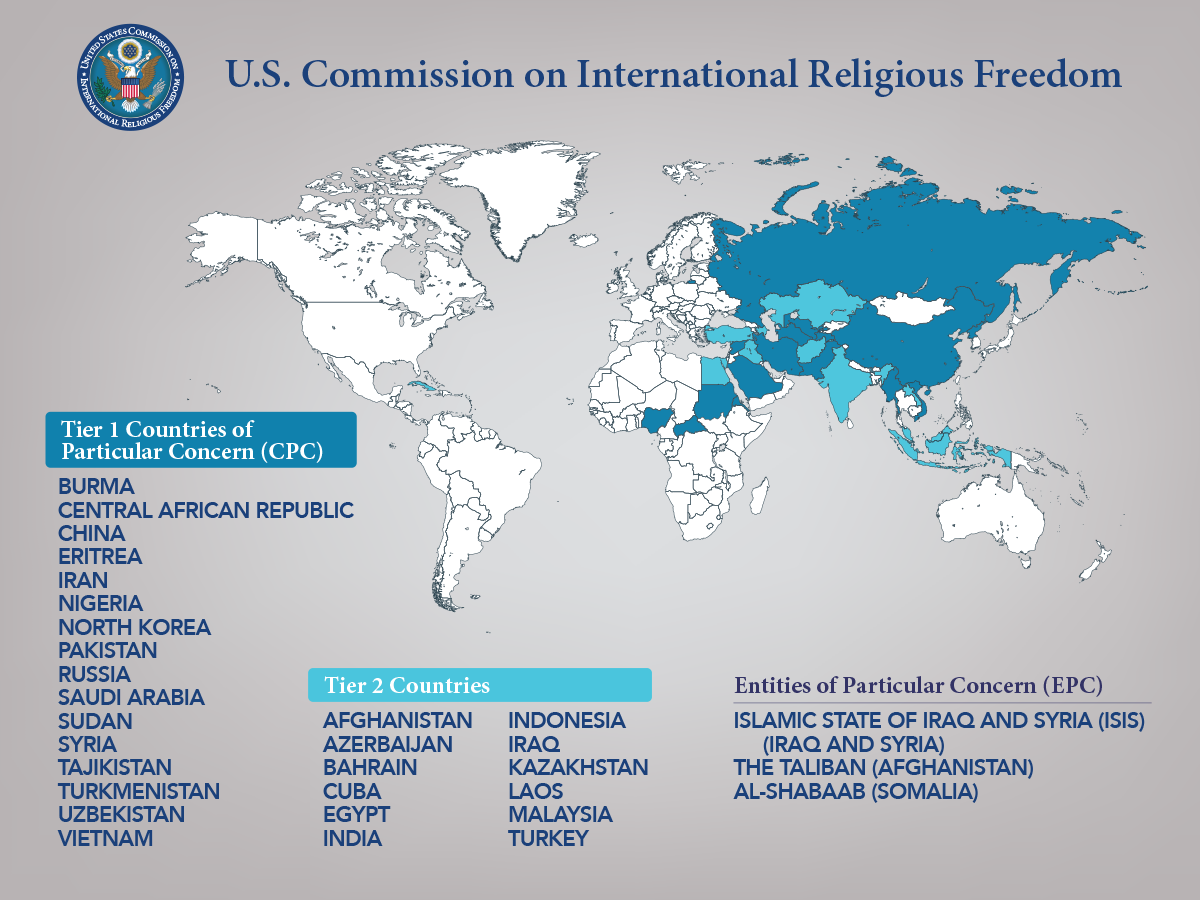The United Sates government has added Nigeria to a ‘Special Watch List (SWL)’ of countries that have engaged in religion violations.
The list was announced by the U.S. Secretary of State, Mike Pompeo, while releasing the 2018 report of the United States Commission for International Religious Freedom (USCIRF).
The report recommended Nigeria’s designation as a Country of Particular Concern (CPC) because religious freedom trended negatively in 2018. The US also designated al-Nusra Front, al-Qa’ida in the Arabian Peninsula, al-Qa’ida, al-Shabab, Boko Haram, the Houthis, ISIS, ISIS-Khorasan, and the Taliban as Entities of Particular Concern.
The report revealed that religious sectarian violence increased during the year, with Muslims and Christians attacked based on their religious and ethnic identity.
It also cited the violation of rights of Shi’a members of the Islamic Movement in Nigeria (IMN), which made Nigeria’s designation inevitable. The report stated: “On December 18, 2019, the Department of State re-designated Burma, China, Eritrea, Iran, North Korea, Pakistan, Saudi Arabia, Tajikistan, and Turkmenistan as Countries of Particular Concern under the International Religious Freedom Act of 1998 for having engaged in or tolerated systematic, ongoing and egregious violations of religious freedom.”
“The Department renewed the placement of Comoros, Russia, and Uzbekistan on a Special Watch List (SWL) for governments that have engaged in or tolerated severe violations of religious freedom and added Cuba, Nicaragua, Nigeria, and Sudan to this list.
“Religious freedom conditions in Nigeria trended negatively in 2018. The Nigerian government at the national and state levels continued to tolerate violence and discrimination on the basis of religion or belief, and suppressed the freedom to manifest religion or belief.”
“The Nigerian military and government continued to violate the religious freedom and human rights of the Shi’a members of the Islamic Movement in Nigeria (IMN). IMN leader Sheikh Ibrahim El-ZakZaky remained in detention”.
“However, in 12 Muslim-majority northern Nigerian states, federalism has allowed the adoption of Islamic Shari’ah law in the criminal codes. The Nigerian constitution also establishes the roles of customary law and Shari’ah courts for Islamic personal law, family”.




